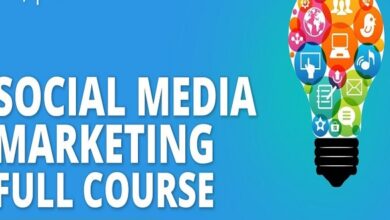The Indirect Influence of Social Media Marketing

Social media can also influence search rankings in a number of indirect ways. For example, it can have a direct branding impact. Here are some other areas where social media can have an indirect influence: Audience building You can build a following by using social media platforms such as Facebook, Twitter, Pinterest, and others to regularly communicate valuable information. Successful use of this tactic can help you develop greater engagement with your customers.
This greater engagement can lead customers to become brand ambassadors as a result of feeling a closer connection to your organization. Customer service Social media sites can provide an effective incremental channel for customer service departments, enabling them to become aware of customer issues that they might not otherwise hear about. While this may not seem like an SEO concern, it can enhance the brand-building efforts of your company. People who are able to see a proactive and effective customer service effort by a company learn to value their relationship with that company even more. In fact, many of today’s consumers expect a rapid response time to any complaint they make via social media.
Failure to meet this expectation can actually be harmful to your brand. Viral impact Once an audience feels closely engaged with a company, their willingness to spread the word is greatly enhanced. Customers who feel a strong affiliation with a brand are more likely to help spread the word on new offerings or promotional programs to others in their network. Link building Publishers with a strong following on a social media platform can release new content on their websites and then announce it through their social media accounts. This can lead to links to the new content and is an effective way to build deep links to the site.
Citations As discussed earlier in this chapter, links in Facebook and Twitter are counted by search engines, but it is also likely (though not confirmed) that brand mentions are also valuable. As search engines look for ways to measure how much they trust a brand, one metric they might use is how many times that brand is referenced across the Web. Brand search generation People who learn about a brand and first become engaged with it through a social media presence may later choose to generate a search query on that brand.
Monitoring, Measuring, and Improving Social Media Marketing: Best Practices
While search engine optimization and social media marketing are two distinct practices, the influence of social media behavior on search results is, and will continue to be, important to consider. This section will explore some basic aspects of how to optimize your efforts in the social realm to help your SEO. Social media networks all operate as communities. In reality, each network is a community of communities.
No individual interacts with an entire network. Each user finds his “tribe” of followers and following. Even within those groups, there will be tighter “inner circles” of people and/or brands that get the most interaction and attention from a user. The structure, rules, and methods of interaction may vary, but a social media network’s primary focus is to create and foster relationships.
Last word
For example, you may think of YouTube as a video site, but a better label for it would be a video-sharing site. Social network sharing is done with the ultimate goal of attracting and engaging a following. People aren’t on social networks to broadcast into a void; they want to feel that they are being heard and that their content has meaning for others.
To ensure that your social media efforts effectively engage your target audience and drive traffic to your business, consider partnering with a top-rated SEO firm in Wilmington, NC. Their expertise can help optimize your social media presence to attract more followers and increase brand visibility.





